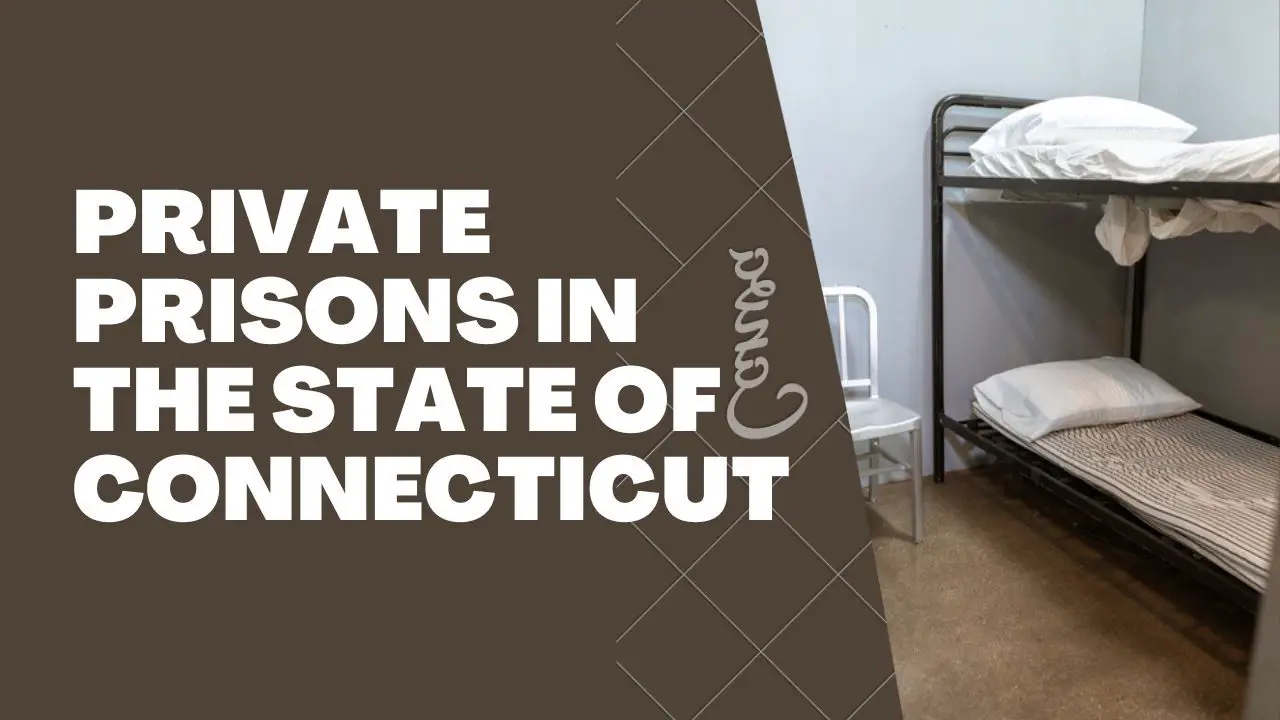Private Prisons In The State Of Connecticut
If you are interested to learn about the private prisons in the state of Connecticut? Read this article, we have mentioned everything you need to know.

The state of California does not have any private prisons at the moment. Connecticut has a Unified System, which means that it has integrated its prisons and jails that operate at the state level.
The state of Connecticut has an imprisonment rate of 394 per population of 100,000, which includes prisons, jails, immigration detention, and juvenile justice institutions. It signifies that a more considerable proportion of its citizens are imprisoned. In addition, almost 30,000 persons in Connecticut are on probation or parole.
Furthermore, there have been several attempts in Connecticut to privatize prisons, but these have not proven successful. The state legislature debated a measure in 2017 that would have let the state contract with private businesses to build and run additional jails. The bill, however, was defeated.
Read Private Prisons In The State Of California
Connecticut Prison System: An Overview
The Connecticut Department of Correction (DOC) oversees the state's prison system. All adult offenders in the state, including those who are held in state prisons, county jails, and child detention facilities, are under the care, custody, and supervision of the DOC.
There are 16 adult correctional institutions operated by the DOC, including 11 state prisons, four county jails, and one juvenile detention facility. Cheshire, Enfield, Hartford, New Haven, Niantic, Somers, and Suffield all house state prisons. In Bridgeport, Danbury, New Haven, and Stamford, there are county jails. Middletown is where the juvenile correctional facility is situated.
Until 2022, 8,700 adult criminals were housed in Connecticut's prison system in total. This number consists of 6,900 convicts housed in state prisons, 1,400 in county jails, and 400 in juvenile detention facilities.
Moreover, the DOC's mandate is to provide a safe and secure environment for offenders, staff, and the public, to promote offender rehabilitation, and to protect the community. The DOC's mission is to be a leader in offender rehabilitation and a model for other correctional agencies.
The DOC provides offenders with a range of services and programs, including education, career training, drug and alcohol treatment, and mental health programs. The DOC also offers a range of reentry services to assist criminals in reintegrating into society following their release from prison.
Things To Know About Connecticut Prisons
Jails and prisons in the state of Connecticut are operated by the Connecticut Department Of Correction (DOC). In Connecticut, jails are mainly used for short-term detention, typically for persons awaiting trial or serving lesser terms.
Meanwhile, prisons hold those serving lengthier sentences. And the state's correctional facilities range from low-security prisons to maximum-security prisons, each with its own set of circumstances and difficulties.
Read Private Prisons In The State Of Arkansas
Robinson Correctional Institution
The Robinson Correctional Institution is a medium-security level prison. It was originally built in 1985 and can accommodate up to 1473 inmates. Later, it was refurbished to improve security, lowering its capacity to 880 prisoners.
The Issues include convicts' lack of visiting privileges, an unpredictable timetable, and funding cuts for inmate facilities to support rehabilitation programs. They resulted in unpleasant circumstances and inadequate medical services.
York Correctional Institute
The York Correctional Institute initially opened in 1918 for both males and females. However, it was closed and reopened in 1994 for females only. It is the state's only jail dedicated entirely to holding female convicts.
Moreover, it can accommodate 1515 convicts. This jail was closed after a five-day rebellion over perceived inequity among convicts, which resulted in the deaths of 43 prisoners and more than 50 staff/guards.
Hartford Correction Institute
The Hartford Correction Institute was opened in 1977. It can accommodate both adult and juvenile inmates. Additionally, It has unique programs for each age level, including online classes for children.
The death of a juvenile prisoner in 2022 due to a lack of oxygen in their cell, which was linked to mismanagement, was a big concern for this facility.
Corrigan-Rogowski Correction Institute
The Corrigan-Rogowski Correction Institute opened in 1994. The facility was constructed to alleviate overcrowding in other jails. Also, it is a facility with a medium security rating of level 3 and can house almost 1586 convicts.
In December 2022, a guard was severely hurt in a heated debate by an inmate, and despite such events, no prisoners were held responsible, raising worries about the staff's safety.
Osborn Correctional Institute
This prison, also known as the Connecticut Correctional Institution, opened in 1963 and has a capacity to accommodate 1900 convicts.
While it provides rehabilitative services, an inmate was discovered deceased due to mistreatment and insufficient medical attention.
Cheshire Correctional Institute
The Cheshire Correctional Institute opened in 1913 and had a capacity of 158 prisoners. A gang started a riot in the jail in 1994, killing two high-profile inmates. While no employees were killed, many were allegedly assaulted.
One of the most fascinating characteristics of the Cheshire Correctional Institution is that it was built in 1910 with the assistance of Wethersfield State Prison inmates.
MacDougall-Walker Correctional Institution
With a capacity of around 2050 convicts, the MacDougall-Walker Correctional Institution is Connecticut's largest and most populated prison. It accommodates all adult and high-profile convicts with a maximum security level of level 5.
A prisoner charged with several murders had his sentence lowered in this facility, raising worries about the efficiency of the prison's punishment system.
Why There Are No Private Prisons In Connecticut?
As mentioned above, as of 2023, there are no private prisons in the state of Connecticut. However, the reason behind the state not going for private prisons are given below:
Opposition From The General Public:
In Connecticut, there is widespread popular resistance to private prisons. Many individuals assume that private jails are less secure and compassionate than state-run facilities. They are also concerned that private prisons may reduce corners to save money.
Low Inmate Population:
Connecticut has a small prison population. However, Connecticut state prisons housed around 8,700 prisoners as of 2022.
When compared to other states, such as California, which has over 130,000 individuals confined in state prisons, the amount of Connecticut’s prisoners is comparatively lower.
Cost:
According to some research, private prisons can be more expensive than state-run jails. This is due to the fact that private prisons are frequently compensated on a per-inmate basis. Therefore, it might incentive them to keep their jails overcrowded.
Legislative Constraints:
Connecticut has certain legal limits on private prisons. The state constitution, for example, prevents the state from contracting with private businesses to administer prisons for profit.
It is speculated that private prisons would be reinstated in the state of Connecticut in the future. However, this is unlikely to happen until the state's jail population increases significantly or the public's perception of private prisons changes.
